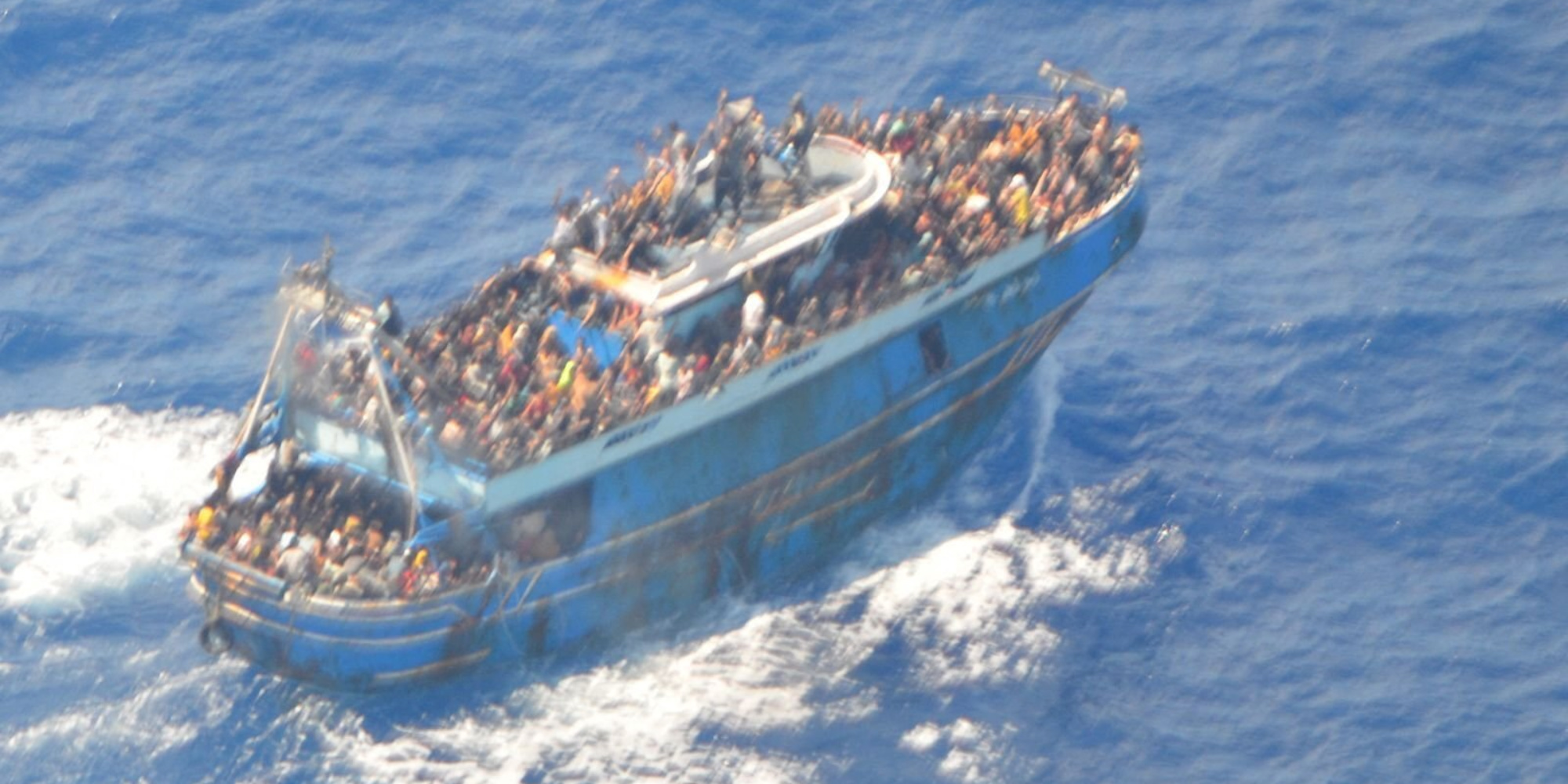Brussels blames the “criminal networks” of smugglers, but the latest sinking of a migrant boat off Greece, one of the worst in recent years in the Mediterranean, also brings out criticism against a “Fortress Europe”. Expressing, like the President of the European Commission Ursula von der Leyen, “his deep sadness” in the face of this tragedy, the President of the European Council Charles Michel denounced the “unscrupulous business of the traffickers” and promised to bring the subject to the agenda for the next summit of heads of state and government, on 29-30 June in Brussels.
More efforts to fight against these “criminal networks”
European Commissioner for Home Affairs Ylva Johansson called for “redouble efforts” to fight against these “criminal networks”, in cooperation with the countries of departure of migrants. She also stressed the need for the EU to “invest in legal channels” for migration. This new tragedy, which could have caused hundreds of deaths, comes a few days after an agreement between EU ministers on a reform of the asylum system, providing in particular for the creation of centers at the external borders of the bloc to return more easily to of “safe” third countries migrants who are refused asylum.
“This horrible shipwreck must be a call to action”, launched Eftychia Georgiadi, program director of the International Rescue Committee (IRC) in Greece, denouncing “the failure of the EU to develop legal channels for migration “, which “closes the door to people seeking protection”.
These shipwrecks are “the effects of the measures and actions” put in place since 2015
For Yves Pascouau, expert in migration issues, these shipwrecks are “the effects of the measures and actions” that have been put in place since the migration crisis of 2015-2016, and the “construction of a space protected from the rest of the world”. The EU states have focused on “the control of the external borders, with in particular a reinforcement of the resources allocated to the Frontex agency”, and on “the removal of people in an irregular situation”, he explains to the AFP. To say “we must open the channels of legal immigration, very well. But today the States do not discuss this question together. And so it is a bit of incantation, the Coué method”, judges he.
In September 2020, the European Commission presented a Pact on Migration and Asylum, a package of reforms which it hopes to see adopted by spring 2024, which notably concerns “compulsory” but flexible solidarity between member countries in the care of asylum seekers and a strengthening of the external borders. It is also setting up action plans on the main migratory routes (Central and Western Mediterranean, Balkan route), providing for agreements with countries of origin and transit to prevent departures and encourage the return of migrants in situations of irregular to these countries.
“This tragedy is not a surprise”
“The European Commission and EU countries continue to make deals with countries with questionable human rights records,” said Stephanie Pope, migration expert at Oxfam. She criticized the EU’s policy of linking migration cooperation to development aid, trade and visa issues. “This tragedy comes as no surprise. It’s not the first time, and it won’t be the last. Last week’s agreement between EU member states isn’t going to solve that either. this will further encourage repressions”, further estimated Stephanie Pope.
Dutch MEP Tineke Strik (Greens) called on the EU to set up “a joint search and rescue mission in the Mediterranean to ensure sufficient capacity and immediate relief”. Furthermore, the role of Frontex in this tragedy has raised questions. A plane from this EU agency spotted the overloaded migrant boat on Tuesday but according to Greek port authorities, it did not intervene because the passengers “refused any help”. “People on board a drifting boat are not asked if they want help (…), it would have required imminent help,” said Nikos Spanos, international maritime incident expert, on the public channel ERT.
